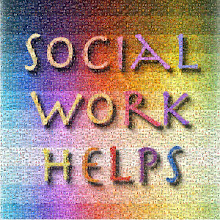
"I still believe, in spite of everything, that people are truly good at heart." -Anne Frank
I had a client come into my office the other day. An elderly gentleman who reported that that he has been feeling very lost since the death of he wife and constant companion of 64 years. As he described to me the tragic circumstances surrounding his wife’s passing, my heart ached for him. Before I started working in bereavement, I was under the mistaken impression that it is not such a big deal when the elderly die because they are nearing the end anyway and “have lived a good long life” (as the platitudes offered by well-meaning well-wishers often go). Tell that to the person who has spent the last 64 years with someone by his side.
As a young person,...



 6:05 PM
6:05 PM
 Social Work Helps
Social Work Helps

 Posted in:
Posted in: 















